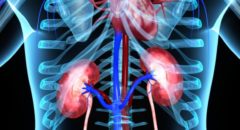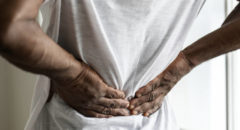
Our kidneys are one of our hardest working organs and often have to endure tough conditions to keep our system clean. Sometimes, we can unknowingly make it doubly challenging to rid our bodies of toxins. Here are a few common habits that you might not realize are putting pressure on your kidneys.
1. Overusing painkillers
Over the counter pain medicines, such as NSAIDs (nonsteroidal anti-inflammatory drugs), may alleviate your aches and pains, but they can harm the kidneys, especially if you already have kidney disease. Reduce your regular use of NSAIDs and never go over the recommended dosage.
2. Eating too much salt
Diets high in salt are high in sodium, which can increase blood pressure and, in turn, harm your kidneys. Flavor your foods with herbs and spices instead of salt. Over time, you may find it easier to avoid using added salt (sodium) on your food.
3. Consuming processed foods
Processed foods are significant sources of sodium and phosphorus. Many people who have kidney disease need to limit phosphorus in their diets. Some studies have shown that high phosphorus intake from processed foods in people without kidney disease may be harmful to their kidneys and bones. Try adopting the DASH diet to guide your healthy eating habits.
4. Dehydration
Staying well hydrated helps your kidneys clear sodium and toxins from the body. Drinking plenty of water is also one of the best ways to avoid painful kidney stones. Those with kidney problems or kidney failure may need to restrict their fluid intake, but for most people, drinking 1.5 to 2 liters (3 to 4 pints) of water per day is a healthy target.
5. Sleep deprivation
A good night’s rest is extremely important to your overall well-being and, it turns out, your kidneys. Kidney function is regulated by the sleep-wake cycle which helps coordinate the kidneys’ workload over 24 hours.
6. Eating too much meat
Animal protein generates high amounts of acid in the blood that can be harmful to the kidneys and cause acidosis – a condition in which kidneys cannot eliminate acid fast enough. Protein is needed for growth, upkeep, and repair of all parts of the body but your diet should be well balanced with fruits and vegetables.
7. Consuming lots of sugar
Sugar contributes to obesity which increases your risk of developing high blood pressure and diabetes, two of the leading causes of kidney disease. In addition to desserts, sugar is often added to foods and drinks that you may not consider “sweet.”
Avoid condiments, breakfast cereals, and white bread which are all sneaky sources of processed sugar. Pay attention to the ingredients when buying packaged goods to avoid added sugar in your diet.
By cutting back on the above, you can make your kidneys’ jobs much easier, and your much healthier.

Jasmine Browley holds an MA in journalism from Columbia College Chicago, and has contributed to Ebony, Jet and MADE Magazine among others. So, clearly, she knows some stuff. Follow her digital journey @JasmineBrowley.








